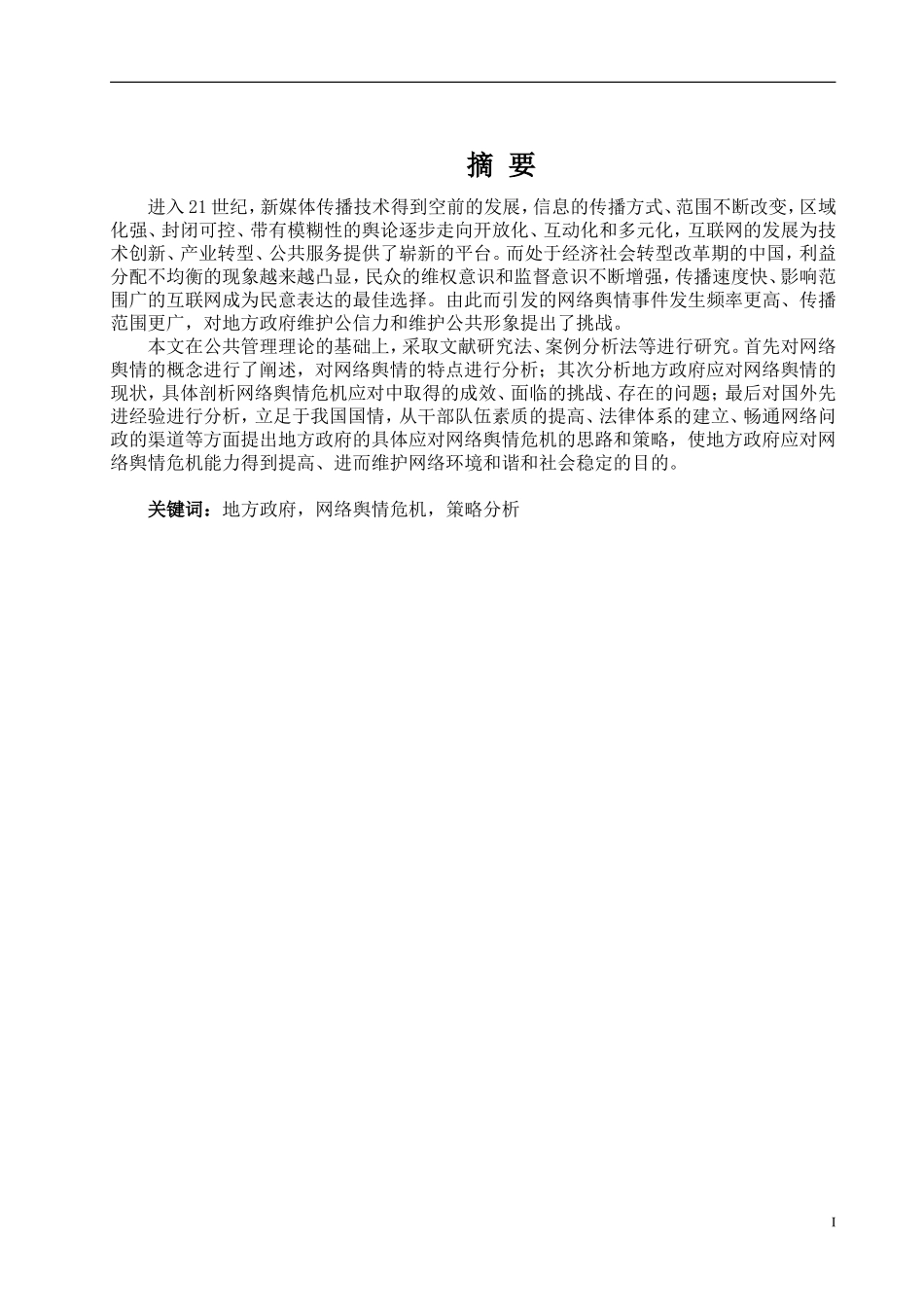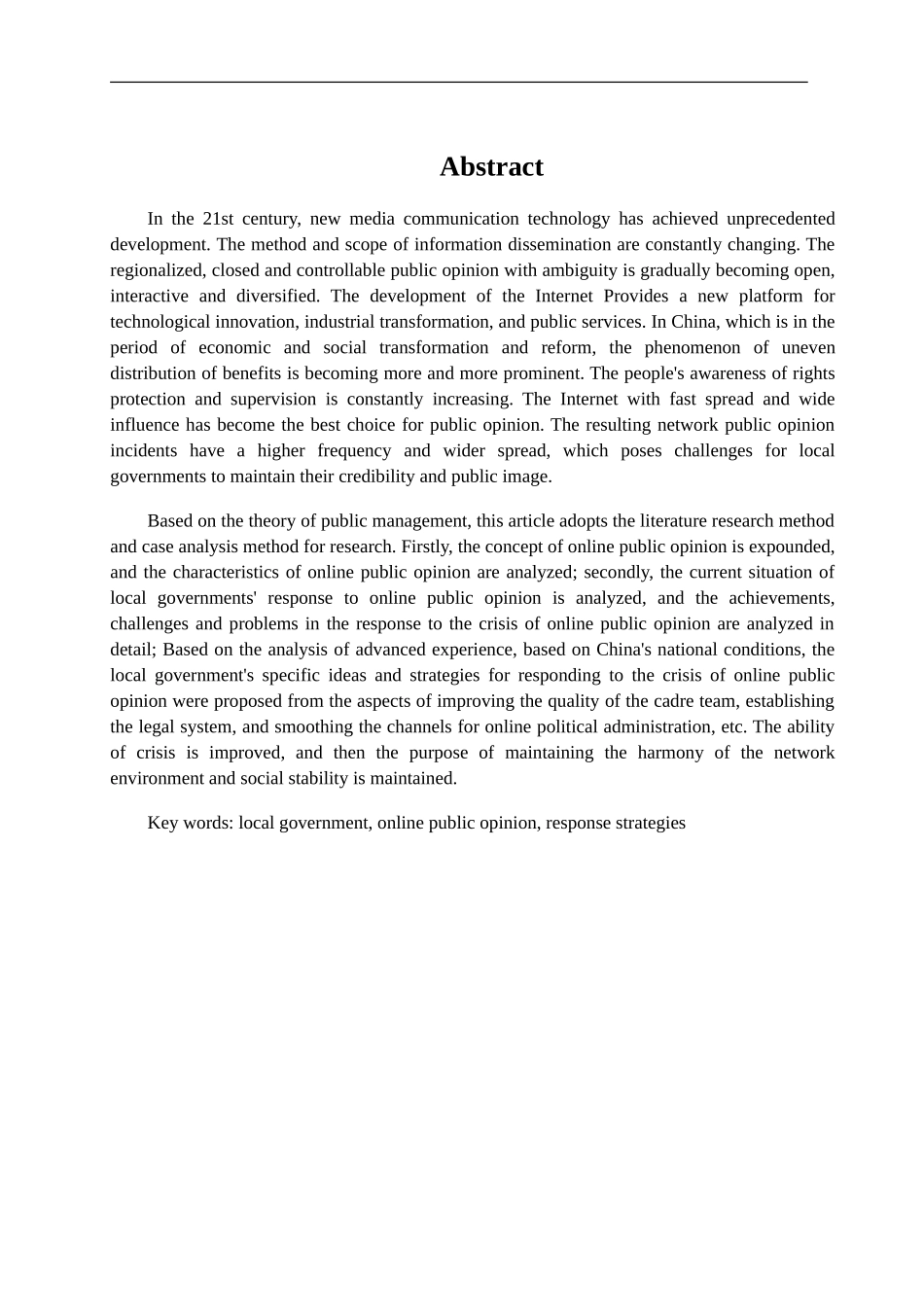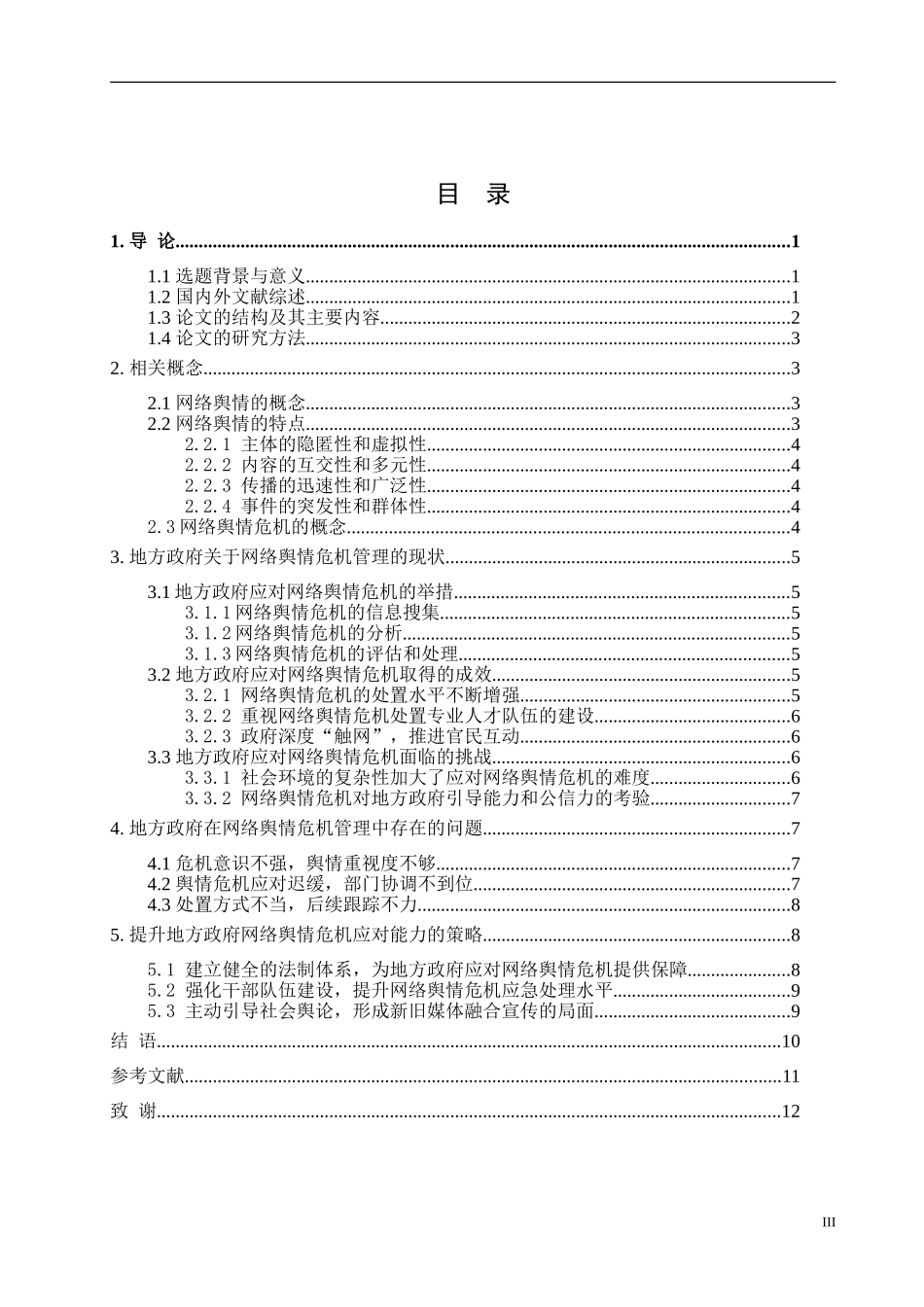摘 要进入 21 世纪,新媒体传播技术得到空前的发展,信息的传播方式、范围不断改变,区域化强、封闭可控、带有模糊性的舆论逐步走向开放化、互动化和多元化,互联网的发展为技术创新、产业转型、公共服务提供了崭新的平台。而处于经济社会转型改革期的中国,利益分配不均衡的现象越来越凸显,民众的维权意识和监督意识不断增强,传播速度快、影响范围广的互联网成为民意表达的最佳选择。由此而引发的网络舆情事件发生频率更高、传播范围更广,对地方政府维护公信力和维护公共形象提出了挑战。本文在公共管理理论的基础上,采取文献研究法、案例分析法等进行研究。首先对网络舆情的概念进行了阐述,对网络舆情的特点进行分析;其次分析地方政府应对网络舆情的现状,具体剖析网络舆情危机应对中取得的成效、面临的挑战、存在的问题;最后对国外先进经验进行分析,立足于我国国情,从干部队伍素质的提高、法律体系的建立、畅通网络问政的渠道等方面提出地方政府的具体应对网络舆情危机的思路和策略,使地方政府应对网络舆情危机能力得到提高、进而维护网络环境和谐和社会稳定的目的。关键词:地方政府,网络舆情危机,策略分析IAbstractIn the 21st century, new media communication technology has achieved unprecedented development. The method and scope of information dissemination are constantly changing. The regionalized, closed and controllable public opinion with ambiguity is gradually becoming open, interactive and diversified. The development of the Internet Provides a new platform for technological innovation, industrial transformation, and public services. In China, which is in the period of economic and social transformation and reform, the phenomenon of uneven distribution of benefits is becoming more and more prominent. The people's awareness of rights protection and supervision is constantly increasing. The Internet with fast spread and wide influence has become the best choice for public opinion. The resulting network public opinion incidents have a higher frequency and wider spread, which poses challenges for local...












